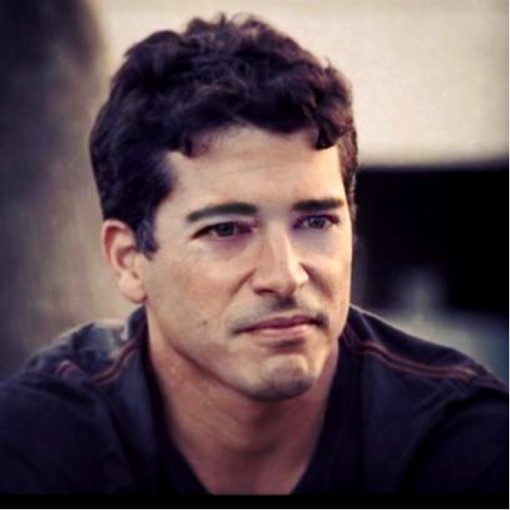Israeli educator, fighter to speak at Yom ha-Zikaron ceremony
“In my personal life, there are two days that are holiest in the year: Yom Kippur and Yom ha-Zikaron [Day of Remembrance for the Fallen Soldiers of Israel and Victims of Terrorism],” says Amichai Chikli, head of Israel’s Tavor Pre-Military Academy.
“Until the Third Temple is rebuilt,” he continues, “Mount Herzl in Jerusalem – where Israel’s National Cemetery is located – is for me the Holy of Holies. The sacrifices of the men and women buried there have built our state.”
Chikli will speak at the Dwares Jewish Community Center, in Providence, on May 10 at 7 p.m., as part of its Yom ha-Zikaron ceremony. Part of his talk will focus on the 2006 Battle of Bint Jbeil, one of the main clashes between Israel and Hezbollah during the Second Lebanon War. Eight Israeli soldiers and officers lost their lives in the Battle of Bint Jbeil and two dozen others were wounded. A close friend of Chikli’s, Lt. Alexander Shwartzman, was killed in the fighting.
“The Second Lebanon War showcased Israeli Jews’ strong unity in moments of crisis,” Chikli says. “However, Israel faces ideological and spiritual challenges too. Military fortitude alone is insufficient. We must strengthen Judaism and Zionism.”
This is a message Chikli hopes to convey in his upcoming talk at the JCC, as well as during a special meeting he will have with the recently formed Zionist Reading Circle of Rhode Island (ZRCRI).
“In addition to its security challenges, the State of Israel is facing a challenge that is harder to see and confront: the challenge of spirituality and identity,” Chikli says. “In 2016, the problem facing the Jewish people is very severe in both the U.S. and Israel. The challenge of assimilation appears to be only a diasporic problem, but in reality, beneath the surface, it is also a problem in Israel.
“The Hebrew language and character of the country hold Jewishness together in Israel, but barely. More and more, Israeli Jews don’t see Jewishness as a substantive component of their Israeli identity.”
The need to confront this problem is what motivated Chikli to found the Tavor Pre-Military Academy, a gap-year program for young men and women in Nazareth Illit, in 2010. The academy’s fundamental value is love of Israel: a commitment to the Zionist vision and to ensuring the prosperity of the land and the people of Israel.
“Do we say that Judaism is about tikkun olam [repairing the world], and it doesn’t matter where or with whom? Or do we say we have a very specific responsibility to ourselves as Jews, and that through doing good for ourselves we repair the world?” Chikli asks. “Underlying almost every substantial societal disagreement among Jews in Israel is the question of Israeliness or Jewishness: Are you more Israeli or Jewish? I see it as the mission of my life to ensure that the Jewish component will be substantive and not neglected in Israeli identity.”
For Chikli, an understanding of Jewish texts and history is crucial to that strengthening.
“Our Jewish identity cannot be based on the Holocaust, which befell us a short time ago,” he says. “Our history goes back much further. Zionism, the national movement of the Jewish people, started on the day we left Egypt. The definitive nationalistic text of Judaism is the siddur [prayer book], which is replete with hopes of returning to our land. Someone who says that Judaism can be detached from the land of Israel is lying to himself.”
Chikli, whose parents made aliyah from France, was born in Israel. His mother moved there at age 14 and his father at age 19. His father’s family fled from Tunisia to France after the Yom Kippur War. That personal history, as well as Jewish national history, is of paramount importance for Chikli.
“When people are called to the Torah, they are not called only by their personal names, but by their names and the names of their parents,” Chikli points out. “In Judaism, you do not exist in this world through your own strength alone. You are the child of your mother and father. You are part of a line that stretches from way back in the past … to far in the future. I am part of a line going back 3,500 years.”
Gilor Meshulam, Israeli emissary (shaliach) for the Jewish Alliance of Greater Rhode Island, met Chikli 10 years ago, while Meshulam was in high school and preparing for military service. He found Chikli to be an inspiring leader who raised challenging questions about Jewish identity. The two men have kept in touch over the years, and Meshulam has now arranged for Chikli to come to Rhode Island in May.
“Yom ha-Zikaron is a singularly meaningful day for me, during which I remember my fallen comrades. Because of their sacrifices, I am able to celebrate the Jewish nation’s life in Israel after 2,000 years of exile,” Meshulam says. “I invite the entire community to join us for a significant Yom ha-Zikaron ceremony – to have our identities and self-perceptions challenged, and to learn from an Israeli educator and fighter.”
MAJ. Amichai Chikli will be the featured speaker at the Yom ha-Zikaron [Day of Remembrance for the Fallen Soldiers of Israel and Victims of Terrorism], ceremony that will take place at 7 p.m. on Tuesday, May 10, at the Dwares JCC.
For more information, please contact Gilor Meshulam, community shaliach, at 401-421-4111, ext. 121, or gmeshulam@jewishallianceri.org.
SHAI AFSAI (ggbi@juno.com) lives in Providence. His article “Nigeria’s Igbo Jews: Jewish Identity and Practice in Abuja” appears in the April 2016 issue of Anthropology Today.








